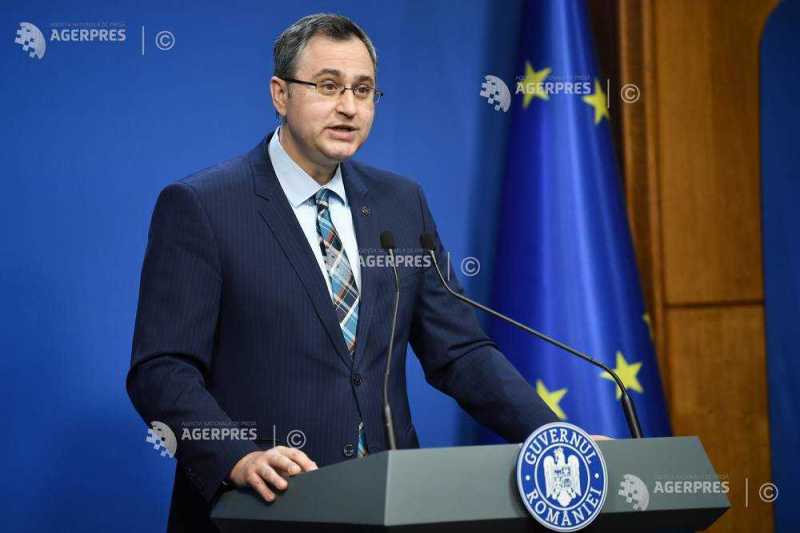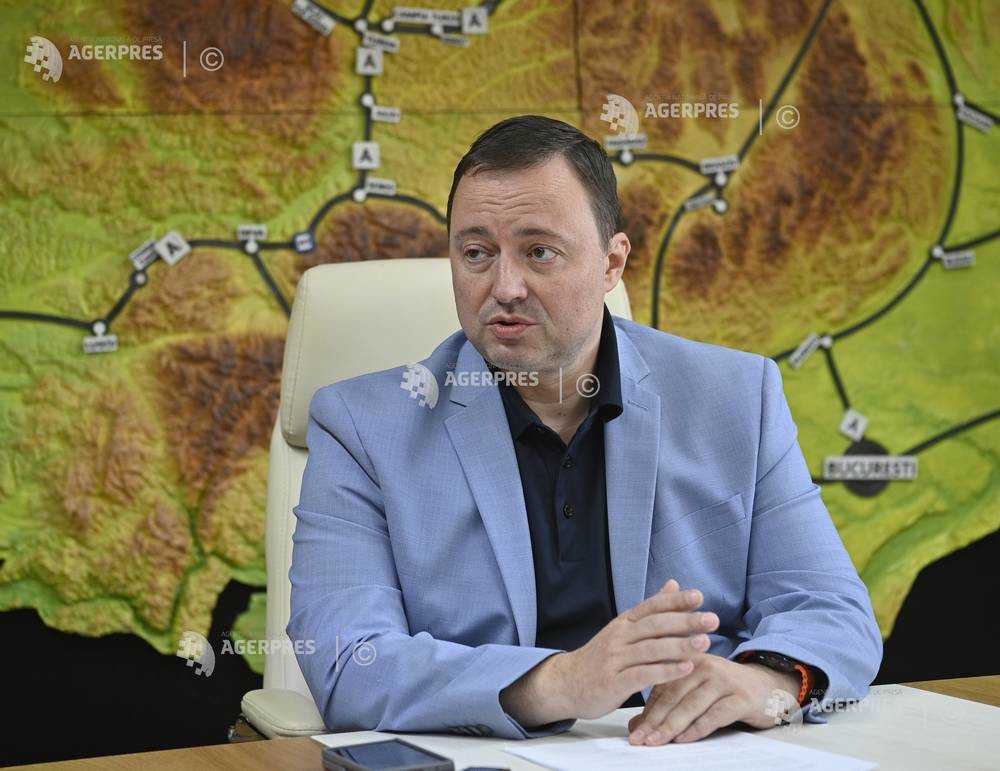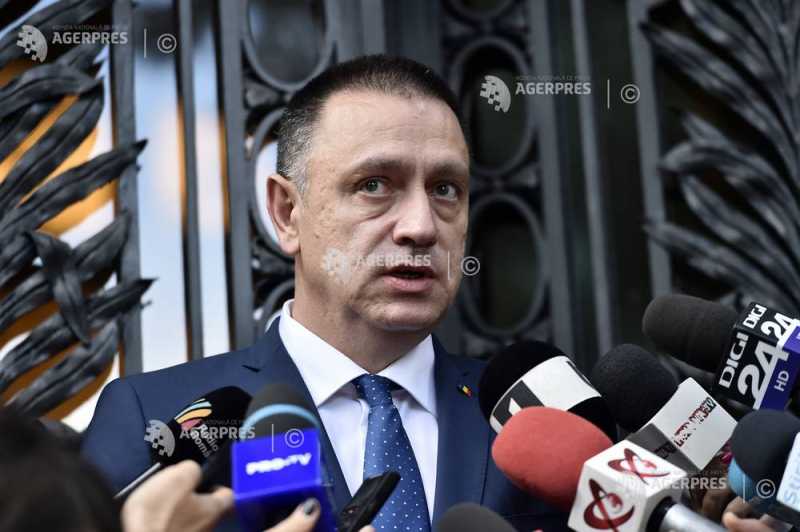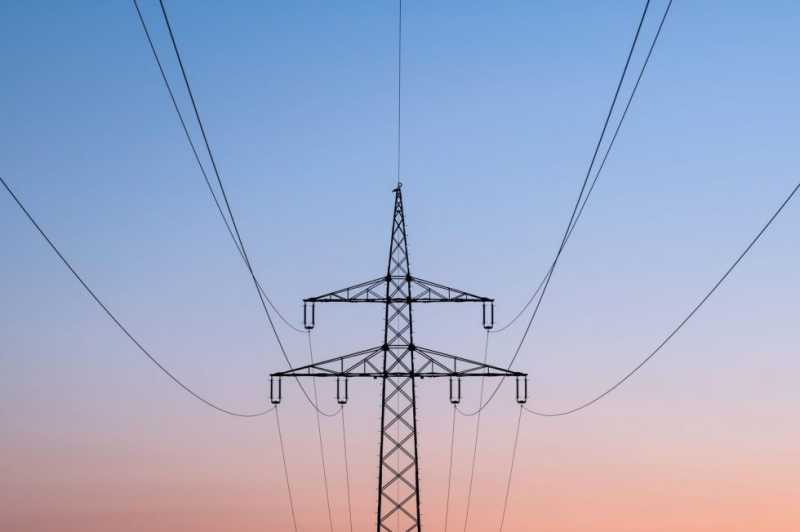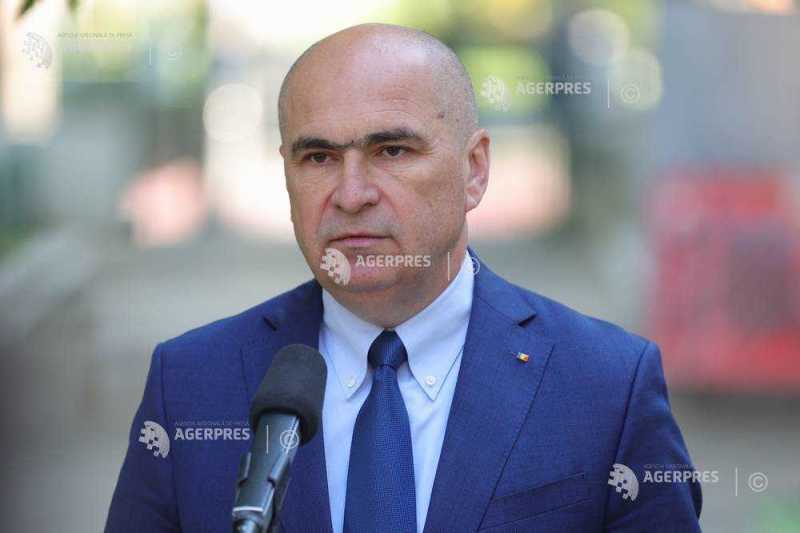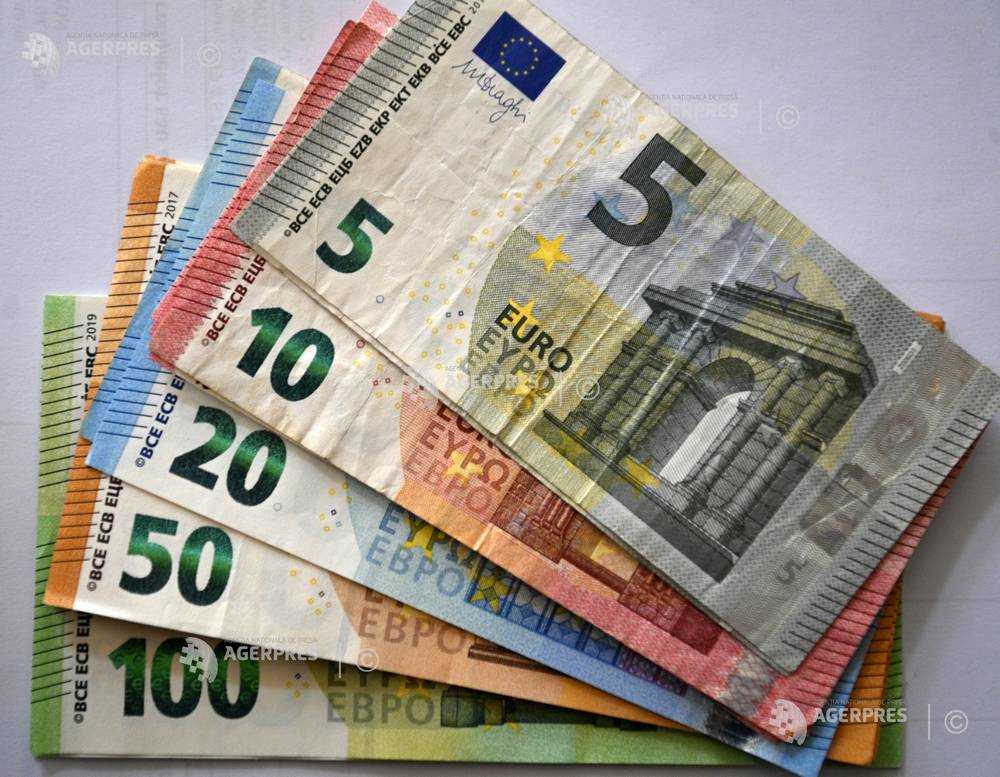EU gets tough on migration as it opens door for controversial return hubs (enr)
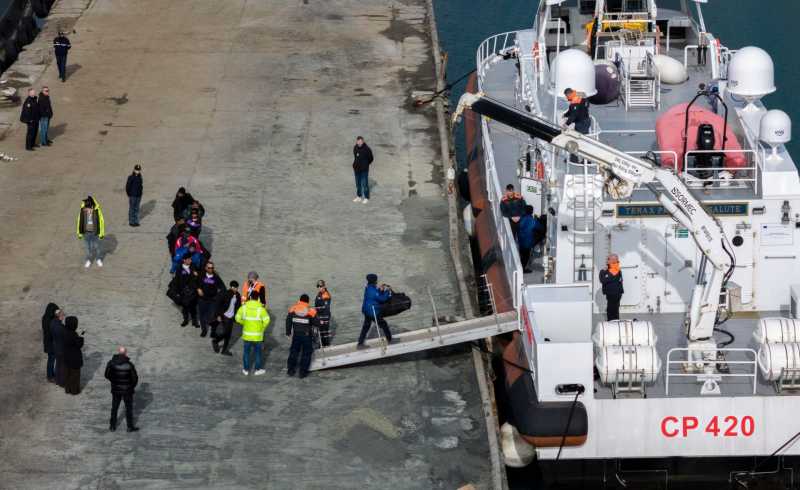
Brussels, March 14 /Agerpres/ - The EU is ramping up its migration crackdown with new proposals to fast-track deportations and set up controversial return hubs outside its borders. While some governments push for even tougher measures, critics warn the plan could lead to human rights violations and legal battles.
The issue of returning rejected asylum seekers has caused heated debates in the European Union for years. Many governments in the 27-nation bloc have repeatedly called for stricter rules to return rejected migrants faster to their country of origin.
A souring of public opinion on migration has fuelled hard-right electoral gains in several EU countries, upping pressure on governments to harden their stance.
Led by the governments of Sweden, Italy, Denmark and the Netherlands, EU leaders called in October for urgent new legislation to increase and speed up returns and for the European Commission to assess 'innovative' ways to counter irregular migration.
On Tuesday, the Commission responded with new plans for tougher deportation rules and stricter controls intended to accelerate the return of rejected asylum seekers and other migrants who don't have a right to remain in the EU.
According to the Commission, currently only around 20 percent of people who are ordered to leave actually return to their country of origin.
'With the new European return system, we will ensure that those who have no right to stay in the EU are actually returned,' EU Migration Commissioner Magnus Brunner told a press conference in Strasbourg. 'This will significantly strengthen trust in our common European asylum and migration system,' he added.
Common deportation rules in the making
The set of measures is aimed at introducing common rules across the bloc on how to process rejected asylum seekers and people who overstay their visa, Brunner said.
Deportation orders issued by one EU country are to be automatically recognised by other member states to avoid repeating legal proceedings in different countries.
Under the proposal, the Commission is seeking to give EU countries the possibility to sanction people who do not co-operate with authorities by imposing financial penalties through reducing or withholding benefits, confiscating identity documents or imposing an entry ban.
Some MEPs have however warned the proposal lacks stronger leverage on third countries to take deported migrants. According to Czech MEP Nicola Bartùšek - whose Oath party is a member of the far-right Patriots for Europe group in the European Parliament - 'the proposal is still too soft'. She added that the EU could put pressure on these countries using its visa policy or the aid it pays to them.
Most controversial is the creation of 'return hubs' outside the EU where rejected migrants could be sent pending transfer home. This is not possible at present as under EU rules migrants can be transferred only to their country of origin or a country they transited from, unless they agree otherwise.
The proposed regulation would allow EU countries to strike deals with other nations to set up such centres. The move opens the way to forms of externalisation of migration control procedures and, in this sense, follows the direction of the protocol signed between Italy and Albania.
The agreement, signed by Italian Prime Minister Giorgia Meloni and her Albanian counterpart, Edi Rama, in Rome in November 2023, envisages that up to 3,000 migrants and refugees per month who are still awaiting their asylum decision from Italy will be housed in Albania.
The centres in Albania are meant to fast track the asylum requests of (some) migrants. People with special needs such as the elderly, children or pregnant women are excluded from the deal.
However, EU officials say the proposed return hubs are a fundamentally different concept - involving unsuccessful asylum seekers rather than individuals seeking European protection.
Fraught with legal and ethical concerns, some experts say return hubs are an expensive and impractical idea that is unlikely to see large-scale uptake any time soon despite the Commission's proposal.
Dr Marta Welander of the International Rescue Committee warned the proposal was likely to result in 'families being torn apart, people being held in prison-like conditions' and a heightened risk of rights violations.
'Keeping people deliberately out of sight and out of mind is not a sustainable solution to Europe's migration challenges,' she said.
Irregular migration on the decline
Amid roaring demands from EU governments to crack down on migration, figures show that irregular entries have in fact already been on the decline in several countries.
Irregular border crossings detected into the EU were down 38 percent to 239,000 last year after an almost 10-year peak in 2023, according to EU border agency Frontex.
In Slovenia, the number of irregular border crossings decreased significantly in 2024. Police have reported around 46,000 cases, almost 25 percent less than in 2023.
Irregular migration across the Slovak border fell by more than 94 percent last year, according to a report on the activities of the chief border commissioner of the Slovak Republic for 2024.
Croatian Interior Minister Davor Božinoviæ said on Wednesday that the country reduced irregular migrant entries by nearly 70 percent last year.
Media outlets and international non-governmental organisations often accuse Croatia of alleged violent police pushbacks, during which migrants were stripped of their documents, personal belongings, and mobile phones. The government rejects these allegations.
In Denmark, which has one of the strictest immigration policies under prime minister Mette Frederiksen, 330 rejected asylum seekers were in deportation status at the end of 2024, while around 860 people were granted asylum last year.
The German Federal Ministry of the Interior announced in January there was a staggering total of 18,384 returns in the first eleven months of 2024. In comparison, the German Federal Office for Migration and Refugees (BAMF) said it received almost 230,000 first-time asylum applications in the same year.
Germany's conservative election winner Friedrich Merz (CDU) vowed to toughen restrictions to reduce irregular migration, such as by rejecting undocumented migrants at its borders, following exploratory coalition talks with the centre-left Social Democrats (SPD).
In Spain, on the other hand, the number of irregular migrants nearly reached a record high in 2024, with 63,970 entries according to figures published by the Interior Ministry in January.
The bulk of arrivals - 73.2 percent - was recorded via the Canary Islands route. A report by NGO Caminando Fronteras said at least 10,457 migrants died or disappeared while trying to reach Spain by sea from January 1 to December 5, 2024 - of which almost 10,000 along the Atlantic migration route from Africa to Spain's Canary Islands.
In November, the government approved a reform of immigration regulations that reduces the timeframes and simplifies the requirements for regularising migrants living in Spain without papers. This could potentially benefit 900,000 migrants over the next three years, according to Elma Saiz, Spain's Minister of Inclusion, Social Security and Migration.
Europe's walls and fences
Several EU countries, including Italy, the Netherlands and Denmark, are pushing to further tighten entries at the EU level, including the strengthening of external borders.
Key initiatives aimed at preventing migrants crossing into EU member states are taking shape for example along the Poland-Belarus border as well as the Greek and Bulgarian borders with Türkiye, which shares a 200-kilometre frontier with Greece.
In 2022, Poland began building a five-metre-high, 186-kilometre-long metal barrier. Attempts by thousands of migrants from the Middle East and Africa to enter Poland are seen by Warsaw as a hybrid operation by Belarus and Russia to destabilise Poland and the EU.
Türkiye plans to build an 8.5-kilometre wall on its western border where Greece and Bulgaria have already erected their own fences, a local governor said.
In 2014, Bulgaria put up a 30-kilometre razor wire fence along its border with Türkiye as migrants flocked there to avoid the perilous Mediterranean Sea crossing.
In 2024, Bulgarian border police officers prevented over 52,500 attempts by migrants to enter the country irregularly. Migration pressure has decreased by 70 percent year-on-year, Border Police Director Anton Zlatanov said during a meeting of the border police heads of Austria, Bulgaria, Romania, and Hungary on Tuesday.
In early February, Bulgarian border police also began the so-called 'Operation Solidarity', a joint effort with colleagues from Austria, Hungary and Romania at the Bulgarian-Turkish border.
On January 1, Bulgaria became a full member of the Schengen area of free movement, with border checks at all internal EU borders removed. Border controls remain in place with the Republic of North Macedonia, Serbia, and Türkiye.
ACT CHECK: Athens train crash protest misrepresented as anti-migrant rally
Anti-migrant narratives have been gaining traction across the European Union, often fueled by misleading or false claims online. A recent example is a video of a large demonstration in Athens on February 28, 2025, which was falsely portrayed as an anti-immigration protest.
The factchecking team of Agence France-Presse has debunked the claims, explaining that the gathering commemorated the second anniversary of Greece's deadliest train crash, which claimed 57 lives in 2023. Protesters were demanding justice for the victims and accountability for the tragedy, with no connection to immigration issues.
Read the full fact check in English: https://factcheck.afp.com/doc.afp.com.36ZA23Q
The content of this article is based on reporting by AFP, ANSA, BTA, CTK, dpa, EFE, HINA, Ritzau, STA, TASR, as part of the European Newsroom (enr) project. AGERPRES (editing by: Mariana Ionescu)
The content of the www.agerpres.ro website has the exclusive purpose of public informing.
All the information published on this website by AGERPRES is protected by relevant legal dispositions.
It is forbidden to copy, reproduce, recompile, decompile, distribute, publish, display, modify, create derived components or products or full services, as well as any exploitation of the site's content.
Details in the section Terms of Use. If you are interested in picking up AGERPRES news items, please contact the Marketing Department – [email protected].
The use of the Comments section entails your obligation to respect the AGERPRES terms and conditions in regards to the publishing of comments on the www.agerpres.ro.
Other news in category
PresidentialElection2025/Nicusor Dan reinforces commitment to Euro-Atlantic path of Romania in message to Concordia Employers' Confederation
General Mayor of Bucharest Nicusor Dan, an independent candidate in the presidential elections, responded in message to the president of the Concordia Employers' Confederation, Dan Sucu, on Wednesday, that private property is 'essential' to encourage Romania's progress. The mayor added that these days, 'more than ever', entrepreneurs an
ICR: Exhibitions, concerts and educational projects - organized on Europe Day at home and abroad
The Romanian Cultural Institute (ICR) will organize a series of cultural activities - exhibitions, concerts and educational projects - in Romania and the Republic of Moldova and through its representative offices and EUNIC clusters abroad on the occasion of Europe Day. According to an ICR press release, sent to AGERPRES on Thursday, the program of events inclu
Spokesman Constantin, after first meeting of caretaker gov't: Gov't acting within constitution's confines
The priorities of the caretaker government regard securing the balance of the private economic circuits for the financial markets, Romanian companies, civil society, for all Romanian citizens, governmental spokesman Mihai Constantin said on Thursday. 'A first meeting under the leadership of caretaker Prime Minister Catalin Predoiu. The government of Romani
Romania's first high-power hub for charging electric vehicles opens near Miercurea Sibiului
Romania's first high-power hub for charging electric vehicles opened on Thursday on the A1 motorway, near Miercurea Sibiului, announced Director General of the National Company for Road Infrastructure Administration (CNAIR) Cristian Pistol. 'Today, Romania's first high-power hub for charging electric vehicles has opened! The heavy-duty vehicle (HDV
EconMin Ivan: Romania is still a stable country, where you can do serious business
Romania is still a stable country, a country open to foreign investment and a country where 'serious, very safe business' can be done, interim Minister of Economy Bogdan Ivan said on Thursday. He was asked, before a government meeting, how serious the political instability in Romania today is for the economy. 'We look at the figures,
Mihai Fifor (PSD Arad): Turning aside - most toxic and cowardly option
Chairman of the Arad branch of the Social Democratic Party (PSD), MP Mihai Fifor, voiced hope on Thursday that politicians will not be 'so immature' as to leave the outcome of the May 18 election to chance, saying that 'turning aside is perhaps the most toxic and cowardly option.' The Social Democrat leader from Arad shared his opinion in a Fac
Spain and Portugal blackout puts EU's ageing power grid in the spotlight (enr)
While the blackout lasted less than 24 hours, it caused shockwaves across Europe and raised questions that will linger for much longer. When lights went out across Spain and Portugal last week, trains stopped, phones died, and entire cities were plunged into darkness. It was a stark warning for Europe's ageing electricity grid, which is under growing press
Romania contributes 23pct of the agricultural workforce in the EU
Romania is one of the most important countries in the European agricultural sector, considering that 23% of the total agricultural workforce in the EU, 1.77 million jobs, is concentrated here - the largest share in the Union, according to a recently launched profile report. Romania owns approximately a third of all farms in the EU, although 90% of them are und
Romanian, Moldovan parliaments host cultural event 'From the Flower Bridge to the Press Museum'
The Senate's committee on culture and media on Tuesday organized, at the Madrigal Galleries of the Palace of Parliament, an event of cultural diplomacy, collective memory and identity affirmation, entitled 'From the Flower Bridge to the Press Museum - Pages of History,' in marking 35 years since the respective emotional moment [of the 'flower bridge' betw
UPDATE PresidentialElection2025/ Ilie Bolojan: Every Romanian who goes to vote will make history
Every Romanian who goes to vote in the runoff of the presidential election 'will make history', said on Wednesday interim President Ilie Bolojan, calling on 'Romania that understands that performance is done seriously and not with scandal.' He participated in the Romanian Business Leaders' Summit. 'Romania does not change
PresidentialElection2025/Victor Negrescu: I can only continue to support the European path in this presidential election
Strasbourg - AGERPRES special correspondent Ionut Mares reports: The European path is the correct solution for Romania, which cannot afford, given the current economic context, to lose access to European financial resources, Social Democratic Party (PSD) MEP Victor Negrescu said in Strasbourg on Tuesday, pointing out that, based on his European-level credentials, he can only
PresidentialElections2025/Electoral Bureau - final results: George Simion - 40.96pct, Nicusor Dan - 20.99pct
George Simion, the AUR (Alliance for the Union of Romania) candidate, collected 3,862,761 votes (40.96%) in the first round of the presidential elections, followed by the independent candidate Nicusor Dan, with 1,979,767 votes (20.99%), the Central Electoral Bureau informs, after centralizing all the minutes from the country and abroad. The BEC published the f
Adrian Negrescu(economic consultant): Romania, not in default scenario, politicians should be more reserved in making statements
The situation on the political scene is influencing more than ever the fears of investors, who are starting to sell Romanian securities and to leave Romania from an investment perspective, maintains the economic consultant, Adrian Negrescu. 'Romania is facing an unprecedented currency crisis. The situation on the political scene is influencing more than ev
Documentary photography exhibition, 'Flori pe Prut', innaugurated at Parliament of Republic of Moldova
The documentary photography exhibition 'Flowers on the Prut: 35 years since the first Flower Bridge' was inaugurated on Tuesday at the Parliament of the Republic of Moldova. Organized in partnership by the State Information Agency MOLDPRES and the National Press Agency AGERPRES, the exhibition inaugurated on Tuesday in Chisinau presents photographs tak
Interim Prime Minister Catalin Predoiu takes office: Romania is and must remain resilient democracy
Romania is and must remain a resilient democracy, a country whose development objectives remain anchored in Euro-Atlantic values, interim Prime Minister Catalin Predoiu said on Tuesday. According to a government press release, interim Prime Minister Catalin Predoiu has taken office at the Victoria Palace of Government, under Presidential Decree number 623, pub




